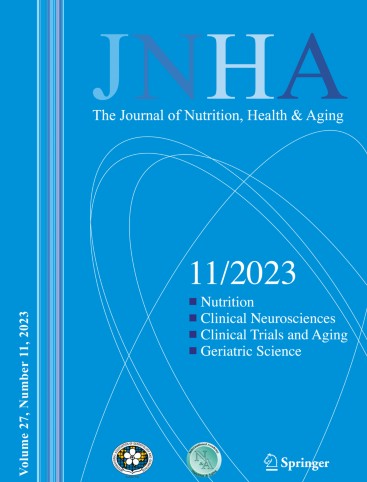Frailty and the short-term prognosis of patients with intracranial hemorrhage: A meta-analysis
IF 4
3区 医学
Q1 GERIATRICS & GERONTOLOGY
引用次数: 0
Abstract
Background
Frailty is increasingly recognized as a predictor of poor outcomes in acute neurological conditions. However, its impact on the short-term prognosis of patients with intracranial hemorrhage (ICrH) remains unclear. This meta-analysis aimed to evaluate the association between frailty and short-term mortality and functional outcomes in patients with ICrH.
Methods
A systematic literature search was conducted in PubMed, Embase, and Web of Science from inception to February 10, 2025. Cohort studies evaluating the association between frailty and prognosis in ICrH patients were included. Odds ratios (ORs) with 95% confidence intervals (CIs) were pooled using a random-effects model by incorporating the influence of heterogeneity.
Results
Twelve cohort studies involving 70,664 patients with ICrH were included. Frailty was significantly associated with increased short-term mortality (OR: 1.79, 95% CI: 1.36–2.35, p < 0.001; I2 = 72%) and poor functional outcome (OR: 1.75, 95% CI: 1.33–2.30, p < 0.001; I2 = 67%). Subgroup analyses were performed for mortality outcomes and confirmed consistent associations across different patient demographics, frailty assessment tools, and follow-up durations (p for subgroup difference all >0.05). Sensitivity analyses by excluding one study at a time showed similar results (p all < 0.05), which demonstrated robustness.
Conclusion
Our study suggests that frailty may be associated with an increased risk of short-term mortality and poor functional outcomes in patients with ICrH. These findings highlight the importance of frailty assessment in risk stratification and clinical decision-making for ICrH patients.
颅内出血患者的虚弱和短期预后:一项荟萃分析
背景:衰弱越来越被认为是急性神经系统疾病预后不良的预测因素。然而,其对颅内出血(ICrH)患者短期预后的影响尚不清楚。本荟萃分析旨在评估ICrH患者虚弱、短期死亡率和功能结局之间的关系。方法系统检索PubMed、Embase、Web of Science自建站至2025年2月10日的文献。纳入了评估ICrH患者虚弱与预后之间关系的队列研究。比值比(ORs)和95%置信区间(ci)通过纳入异质性影响的随机效应模型进行汇总。结果纳入12项队列研究,涉及70,664例ICrH患者。虚弱与短期死亡率增加(OR: 1.79, 95% CI: 1.36-2.35, p < 0.001; I2 = 72%)和功能预后不良(OR: 1.75, 95% CI: 1.33-2.30, p < 0.001; I2 = 67%)显著相关。对死亡率结果进行了亚组分析,并证实了不同患者人口统计学、虚弱评估工具和随访时间之间的一致关联(亚组差异p均为0.05)。通过一次排除一项研究的敏感性分析显示类似的结果(p均<; 0.05),这证明了稳健性。结论:我们的研究表明,虚弱可能与ICrH患者短期死亡风险增加和功能预后不良有关。这些发现强调了脆弱性评估在ICrH患者风险分层和临床决策中的重要性。
本文章由计算机程序翻译,如有差异,请以英文原文为准。
求助全文
约1分钟内获得全文
求助全文
来源期刊
CiteScore
7.80
自引率
3.40%
发文量
136
审稿时长
4-8 weeks
期刊介绍:
There is increasing scientific and clinical interest in the interactions of nutrition and health as part of the aging process. This interest is due to the important role that nutrition plays throughout the life span. This role affects the growth and development of the body during childhood, affects the risk of acute and chronic diseases, the maintenance of physiological processes and the biological process of aging. A major aim of "The Journal of Nutrition, Health & Aging" is to contribute to the improvement of knowledge regarding the relationships between nutrition and the aging process from birth to old age.

 求助内容:
求助内容: 应助结果提醒方式:
应助结果提醒方式:


